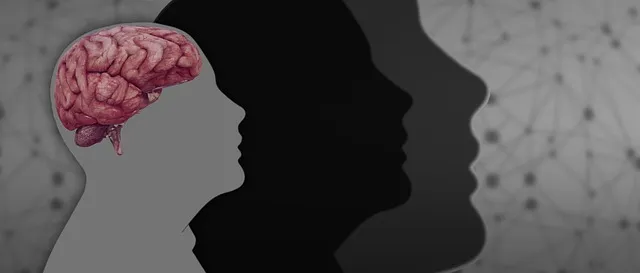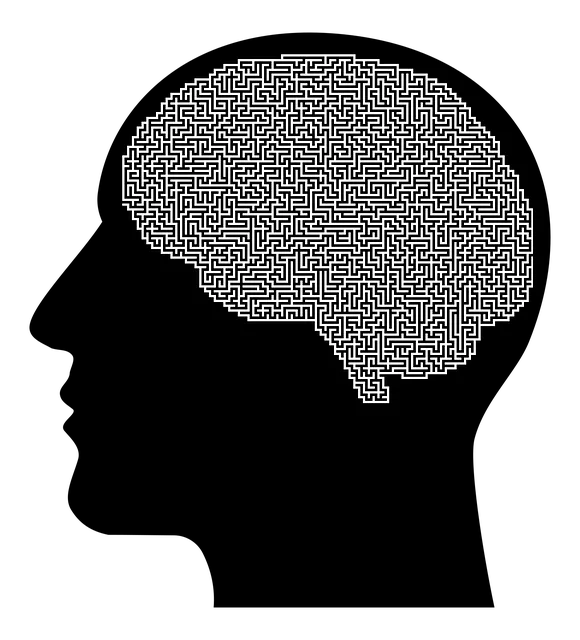Kaiser Permanente behavioral health services in Lafayette, CA, employ a multi-faceted strategy to enhance mental illness diagnosis accuracy. They combine thorough patient evaluations using historical data and clinical interviews with evidence-based assessment tools and continuous professional development. By integrating advanced analytics, public awareness campaigns, and innovative practices like trauma-informed care and emotional well-being promotion, they aim to improve access to quality mental health care. Their patient-centered approach prioritizes open communication, tailored treatment plans, and conflict resolution techniques for better diagnosis precision and improved patient outcomes.
Mental illness diagnosis accuracy is a critical aspect of patient care, especially at organizations like Kaiser Permanente Behavioral Health Services Lafayette. This article explores efforts to enhance diagnostic precision, focusing on challenges faced in the current landscape and innovative strategies employed by Kaiser Permanente. We delve into understanding mental illness, uncovering barriers to accurate diagnoses, and highlighting training methods as well as patient-centered approaches that are revolutionizing assessment practices within behavioral health services at Kaiser Permanente Lafayette.
- Understanding Mental Illness Diagnoses: The Current Landscape at Kaiser Permanente Behavioral Health Services Lafayette
- Challenges in Diagnosis: Uncovering the Barriers to Accuracy
- Innovative Strategies for Improving Diagnostic Accuracy
- Training and Education: Equipping Professionals for Better Assessments
- Patient-Centered Approach: Enhancing Communication for Accurate Diagnoses
Understanding Mental Illness Diagnoses: The Current Landscape at Kaiser Permanente Behavioral Health Services Lafayette

At Kaiser Permanente Behavioral Health Services Lafayette, understanding mental illness diagnoses is a complex and evolving landscape. The current approach involves a comprehensive evaluation process that includes detailed patient history, clinical interviews, and evidence-based assessment tools. Mental health professionals here are dedicated to ensuring accurate diagnoses, which is crucial for effective treatment planning. They employ sophisticated risk management planning techniques and regularly update their knowledge base to stay abreast of the latest research and guidelines in mental health diagnosis.
This commitment extends beyond internal practices; it also involves public awareness campaigns development to educate communities about mental health conditions. By fostering open dialogue and promoting early intervention, Kaiser Permanente Behavioral Health Services Lafayette aims to improve overall mental wellness within the community, ensuring that those seeking help receive proper support and treatment for their specific needs. This holistic approach combines rigorous risk assessment for mental health professionals with community engagement strategies to enhance diagnosis accuracy and accessibility to care.
Challenges in Diagnosis: Uncovering the Barriers to Accuracy

Diagnosing mental health conditions accurately can be a complex task due to several barriers present within healthcare systems. One significant challenge is the subjective nature of symptoms reported by individuals, which may vary widely from person to person. This complexity is further compounded by the vast array of potential disorders and the need for precise criteria to differentiate between them. For instance, Kaiser Permanente behavioral health services in Lafayette face the task of accurately diagnosing patients within a diverse population, where cultural differences, life experiences, and unique personal histories play a role in symptom expression.
Additionally, historical factors such as systemic biases and a lack of diversity in clinical training can impact diagnosis accuracy. Stigma surrounding mental illness also influences help-seeking behaviors, potentially leading to delayed or misdiagnoses. To address these challenges, Kaiser Permanente Lafayette has been implementing innovative strategies like enhancing communication with patients, incorporating Trauma Support Services, and promoting Emotional Well-being Promotion Techniques. These efforts aim to improve diagnosis precision by fostering better patient-provider relationships, understanding traumatic experiences, and recognizing the broader context of an individual’s emotional well-being.
Innovative Strategies for Improving Diagnostic Accuracy

Improving diagnostic accuracy for mental illness is a multifaceted challenge that requires innovative strategies. Kaiser Permanente behavioral health services in Lafayette have been at the forefront of this effort, integrating cutting-edge techniques to enhance assessment methods. One such approach involves leveraging advanced data analytics and machine learning algorithms to analyze patient history, symptoms, and treatment responses, enabling more precise diagnoses.
Additionally, they emphasize Public Awareness Campaigns Development and Mental Health Awareness initiatives to foster self-awareness exercises among individuals. These programs aim to educate people about the signs and symptoms of various mental health conditions, encouraging early intervention. By combining advanced technology with community engagement, Kaiser Permanente behavioral health services strive to create a more inclusive and effective mental healthcare ecosystem, ultimately improving outcomes for those seeking support.
Training and Education: Equipping Professionals for Better Assessments

At Kaiser Permanente behavioral health services Lafayette, significant efforts are being directed towards enhancing diagnostic accuracy. This involves comprehensive training programs aimed at equipping mental health professionals with advanced skills and knowledge. The focus is on improving assessment techniques, incorporating cutting-edge research, and fostering an environment that promotes continuous learning. By enhancing the educational foundation of healthcare providers, the organization aims to reduce misdiagnosis rates and improve patient outcomes.
The Mental Health Policy Analysis and Advocacy plays a crucial role in this initiative by advocating for evidence-based practices and policies that support better diagnosis and treatment. Additionally, promoting Emotional Intelligence among professionals helps in building stronger patient relationships, enabling more precise evaluations. Moreover, integrating Coping Skills Development into the diagnostic process equips patients with tools to effectively communicate their experiences, further refining assessment accuracy.
Patient-Centered Approach: Enhancing Communication for Accurate Diagnoses

At Kaiser Permanente behavioral health services Lafayette, a patient-centered approach is being implemented to enhance communication and improve mental illness diagnosis accuracy. This means actively listening to patients’ unique experiences, perspectives, and concerns, and using this information to tailor treatment plans. By fostering an open dialogue, healthcare providers can better understand the nuances of each individual’s mental health journey, leading to more precise diagnoses.
The patient-centered approach also integrates emotional regulation techniques, risk management planning for mental health professionals, and conflict resolution techniques into the diagnostic process. These strategies enable healthcare providers to create a safe and supportive environment, encouraging patients to openly discuss their symptoms and challenges. As a result, this comprehensive method not only improves diagnosis accuracy but also enhances patient satisfaction and treatment outcomes.
Efforts to improve mental illness diagnosis accuracy, as highlighted by Kaiser Permanente behavioral health services Lafayette, underscore the imperative need for comprehensive training and patient-centered approaches. By addressing challenges through innovative strategies, professionals can enhance assessment techniques, ultimately leading to more precise diagnoses. Continued education and open communication foster an environment where every individual receives the appropriate care, ensuring better outcomes for those seeking help at Kaiser Permanente or any healthcare facility.






